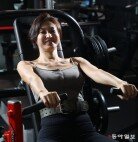Soccer Association and Colleges at Odds
Starting from 2007, the maximum number of school days for soccer players in almost all colleges nationwide, was 14 days: the first week of March and the second week of May in which no national tournaments were scheduled. They did not have any chances to take classes due to conflicting practice sessions for premier leagues and tournaments for freshman and sophomores.
Given this situation, in a recent meeting with coaches from seven universities, Korea Football Association discussed fostering an atmosphere which would make soccer players study.
In this meeting, the Association gathered the managers opinions on its plan to grade players on their performance in each game, instead of the team performance. This decision stemmed from the fact that the current system causes side effects among high school players by making them focus only on practice rather than studying. This will serve as a preliminary step toward making high school players practice after school and play their regional league matches on the weekends.
College managers were reluctant, saying, Although we understand the plans intention, there will be difficulties in making it a reality. Reasons for opposing this plan included insufficient practice time, team scores which ultimately serve as measures to gauge individuals inequality between soccer and other sports items, and doubtfulness as to whether the Office of College Administration, which is overly obsessed with grades, would accept the proposal.
Officials at the Korea Football Association and the Ministry of Education and Human Resources Development said, If colleges change, so will Korean soccer. They pointed out that if colleges require the players to study for the entrance exam, middle and high school players will naturally have no choice but to study. Players who only wish to concentrate on playing soccer do not need to enter college and instead turn professional.
Currently, however, colleges, which are impatient, only focusing on player performances, deprive players from their right to take classes and urge them to spend their four-year college lives practicing and playing matches only. In reality, however, the plan to make soccer players study is not gaining ground. Korean soccer will change only if the colleges change their current views and practices.
yjongk@donga.com







